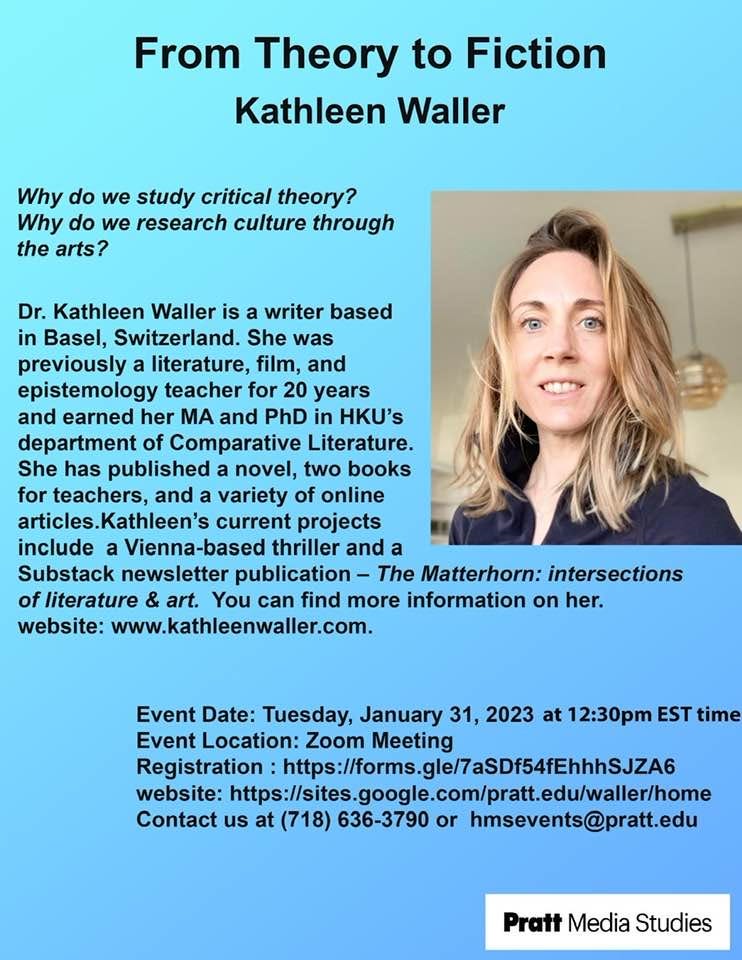I had a great time sharing ideas about writing, the creative process, and critical theory with students at Pratt Institute a couple weeks ago. I am sharing the talk here with you so that you can also add to our discussion in the comments.
Why do we study critical theory? Why do we research culture through the arts?
We seek to find ideas about the world, humanity, or individuals through this type of study. The end result may be personal knowledge, sharing through academic papers and conferences, or working with organizations toward deeper understanding or toward, for example, policy change and art exhibitions.
The way I make sense of these ideas is through fiction. Writing novels allows me a space to play with theory and implicitly or explicitly create intertextual discoveries. It further helps me to continue my learning journey without limit.
In this talk and discussion, we will consider the purpose of learning critical theory and historical understandings of the arts as creators. We shall also consider the way knowledge can lead to various forms of creativity.
And, here’s a link to the slides I used with references and extras in the notes on each slide. (The format’s a little funky in the conversion from .ppt to Google Slides, but it’s all there.)
I’d love to hear your thoughts about critical theory, the creative process, and the importance of writing in your life. There are also some discussion question prompts in the lecture / slides. Thanks so much for checking this out!







Thanks for a great talk, Kate! I found the discussion about your journey and studies - as well as how they feed into your novel writing now - fascinating.
Thanks so much for sharing this talk Kate. It was really interesting to hear how your relationship with critical theory has developed. I completely agree that the political discussions in Florida around critical race theory are actually about reducing/removing the tools for change. You have to ask what the powers calling for its suppression are so worried about? What critical theory like that gives students is knowledge that challenges the ways in which power currently circulates. And that's threatening for those who have the upper hand. I liken it to Section 28 law in the UK, introduced in the 1980s by the Thatcher government, which restricted discussions about homosexuality in schools.